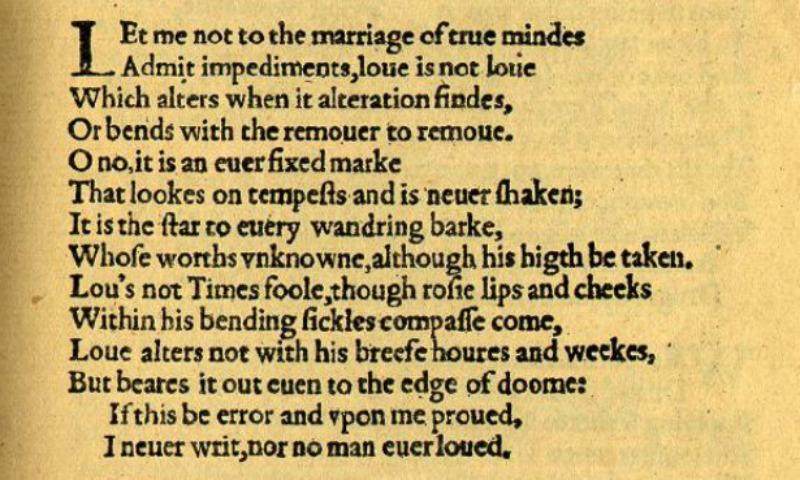Olivier Had it Wrong: Shakespeare’s Original Pronunciation
We’ve learned to understand Shakespeare from the likes of Laurence Olivier (or perhaps the likes of Ethan Hawke). To our ears, Olivier seems to define the sound of Shakespeare, but he was probably way off. Over the 400 years since Shakespeare’s death, the pronunciation of English has changed so much that we’re not getting the full flavor, or full meaning, of Shakespeare’s poetry.
Davidand Ben Crystal, a father and son team, have recreated what they say is Shakespeare’s original pronunciation, or OP, as they call it — how Shakespeare’s plays would have been sounded around 1600.
How did they achieve this Jurassic Park-like resurrection of a long-dead accent? David, the elder Crystal, is a linguistic scholar, and he starts with the sonnets. Of the 154 known, 96 don’t rhyme perfectly, “and why is that?” he asks. “Was Shakespeare not a very good poet?” Crystal dug into the work of 17th-century grammarians, who wrote about rhyme. “Proved” and “loved” don’t rhyme to us, but Shakespeare, it turns out, would have said “pruvved” and “luvved.” When you bring these rhymes back, ancient puns surface — some of them fairly dirty.
The OP accent that emerges from the Crystals’ research sounds closer to the Northern English or even some American accents. “Received pronunciation,” the very proper, clipped speech we associate with British actors or BBC news anchors, didn’t develop until the early 1800s, when the upper classes wanted to distinguish themselves audibly from the burgeoning middle class.
Ben Crystal is an actor and director who has taught OP to theater companies from London to Reno, Nevada. He says the more colloquial speech loosens up actors and transforms the way they speak the lines. OP also moves much faster, shaving minutes off the production.
The Crystals say they are 90 percent certain of their reconstruction of OP. David, the scholar, “from an academic point of view, sort of hates that final 10 percent,” says Ben, the actor. But Ben sees that uncertainty as wiggle room for the actors to incorporate their own accents and experiences — to make the language their own. He even enjoys doing workshops in cowboy country, like Texas. “It works brilliantly in Southern American.”
(Originally aired April 11, 2014)
Bonus Track: Kurt’s extended conversation with David and Ben Crystal
Some highlights:
- 7:30 — Shakespeare’s “real” accent: Given that Shakespeare’s actors all spoke in their own regional dialects, Kurt wonders if the Crystals actually unearthed the playwright’s own accent. “No, we’ll never know that,” David responds. What they are reconstructing is the “sound system” that allowed people of different accents to understand each other. For example in 1600, all the English pronounced “invention” as “in-ven-see-UN” whether they were Welsh or Londoners.
- 23:30 — On punning: Their research into Original Pronunciation unearthed many long forgotten puns. When performing “Romeo and Juliet,” the Crystals discovered that “lines” and “loins” rhymed. “Their bodily loins and their genealogical lines — there’s a pun here,” David says, “which until the OP production, nobody had never noticed before!”
- 31:30 — Shakespeare NSFW: Yes, the Crystals also discovered dirty jokes as well. The character Touchstone in “As You Like It” recounts a joke that made him laugh for an hour. “And so, from hour to hour, we ripe and ripe / And then, from hour to hour, we rot and rot / And thereby hangs a tale.” In modern English, it’s not funny. It’s actually a depressing commentary on human mortality. But in OP, hour is pronounced “ore” — the same pronunciation of the word “whore.” Suddenly, ripe and rot take on a whole new meaning.
